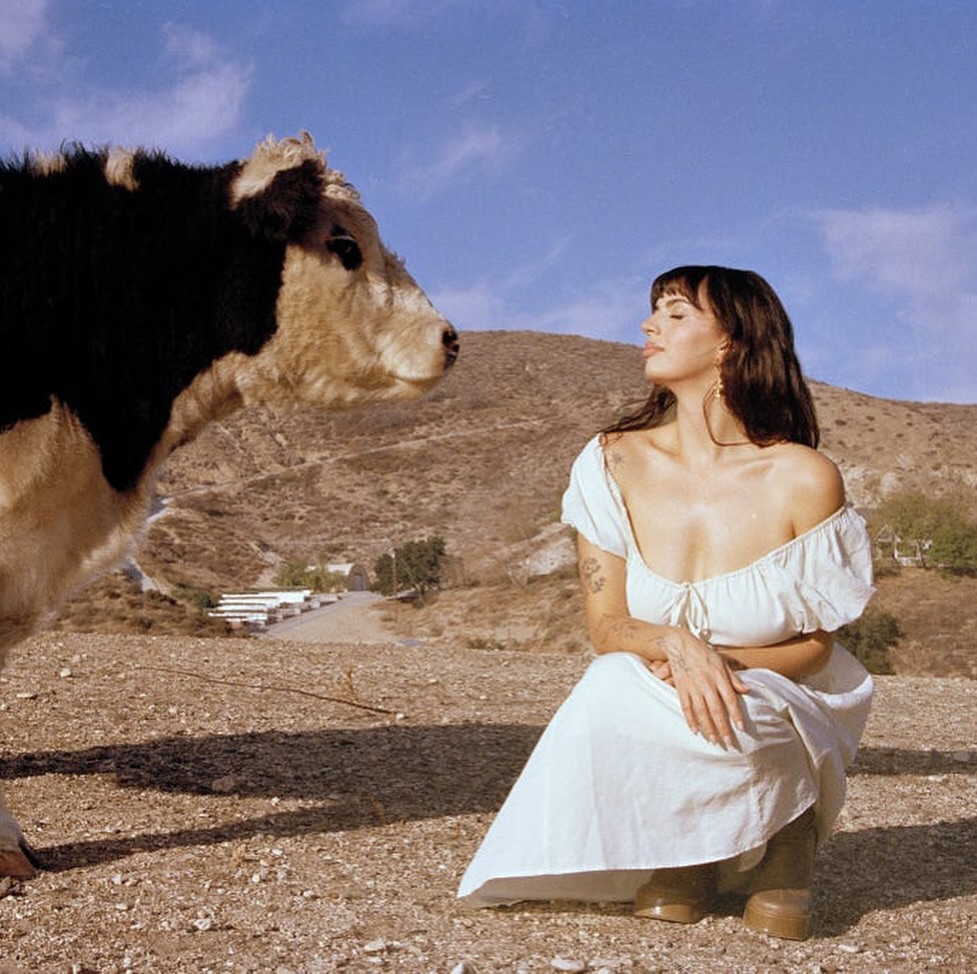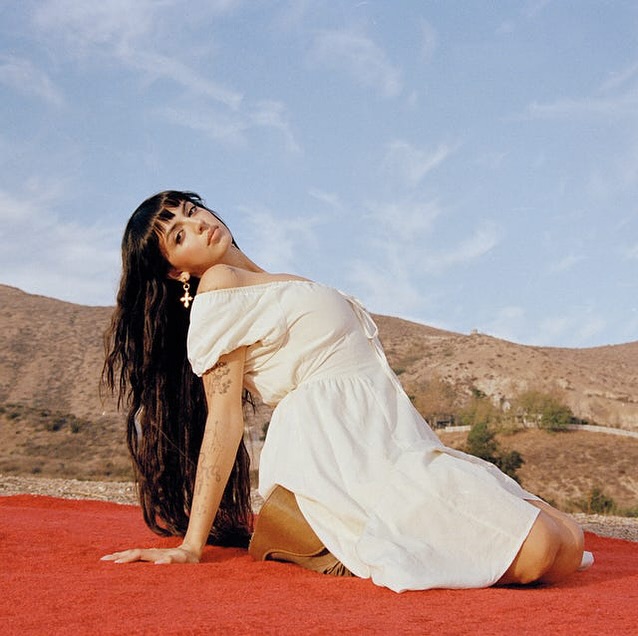Welcome to Friday Night Church—on a Thursday
It’s a Thursday evening in Brooklyn, but the air is electric with weekend energy. The crowd surges, sequins shimmer, and the bass pulses like a collective heartbeat. Inside the sold-out venue, you’d be forgiven for thinking you’ve been transported to some queer, glitter-drenched altar, where the faithful gather not for worship—but for release.
At the center of it all stands Rebecca Black—yes, that Rebecca Black—the one who once ruled the internet with the now-infamous, auto-tuned anthem “Friday.” But tonight, she’s no meme, no punchline. She’s a bona fide pop priestess, leading her congregation in a euphoric, sweat-slicked celebration of transformation, truth, and total liberation.
From Internet Punchline to Pop Ascension
Rebecca Black’s journey is nothing short of a redemption arc for the digital age. Catapulted to viral notoriety as a teenager in 2011 with “Friday,” she became a lightning rod for ridicule and online cruelty. But in 2024 and beyond, she’s rewritten her story—not by running from her past, but by owning it with humor, heart, and a whole lot of sequins.
Her most recent EP, Salvation, is a defiant, glittering declaration of identity and artistry. It’s synth-heavy, sex-positive, and sonically rich, tapping into the legacy of hyperpop, dancefloor catharsis, and queer club culture. With it, Black doesn’t just shed her past—she transforms it into something holy.
A Queer Utopia in Motion
At her Brooklyn show, the vibe is unmistakable. This isn’t just a concert—it’s a safe space in motion. There’s a haze of weed and poppers in the air, yes, but also something more sacred: joy. The kind that comes when everyone in the room feels seen, heard, and beautifully unfiltered.
On stage, Black is radiant. Her look: cyberpunk-glam meets dominatrix fairy. The energy: chaotic good. Her dancers are kissing, grinding, voguing, and flinging themselves across the stage with reckless abandon. It’s raw, it’s sensual, and it’s unapologetically queer—not tokenized, not softened for mainstream appeal, but fully immersed in its own rhythm.
The crowd? A sea of girls, gays, and theys, dressed in everything from latex to thrifted feathers, shouting every lyric like scripture. They’re not just watching—they’re participating. It’s communion by chorus, led by an artist who understands the deep, healing power of a beat drop.
“Salvation” in More Ways Than One
The title of her EP couldn’t be more fitting. Salvation isn’t just an aesthetic; it’s a mission statement. In interviews, Black has spoken about reclaiming her voice, her queer identity, and her power after years of being defined by a 3-minute viral video. Now, she’s turning that narrative inside out, building a new mythos around survival, sexuality, and sonic evolution.
Songs like “Crumbs,” “Doe Eyed,” and “Destroy Me” aren’t just pop tracks—they’re confessions set to strobe lights, laced with yearning and euphoria. They speak to the experience of growing up online, of loving in the margins, of dancing through heartbreak like it’s the only thing keeping you alive.
Black’s music doesn’t just resonate—it resurrects.
A Sonic Lineage of Liberation

In many ways, Rebecca Black is now part of a growing generation of artists queering pop from the inside out. Think: Charli XCX, Slayyyter, Kim Petras, and Rina Sawayama. They create not for the masses, but for the subcultures that made them—the underground clubs, the fan Discords, the late-night Tumblr scrolls.
But what makes Black unique is the publicness of her metamorphosis. We watched her fall. Now, we’re watching her fly in platform boots, middle finger raised in defiance, microphone in hand.
Her sound—a fusion of dark synths, club beats, and vulnerable lyrics—mirrors this transformation. It’s not about fitting in. It’s about finally fitting herself.
Stage Kisses and Sweat-Soaked Freedom
Back in Brooklyn, the show builds to a fever pitch. The room is sticky with sweat and pheromones, bodies packed tight, arms thrown around strangers. When her breakout track “Friday” finally arrives in the encore—reimagined, darker, more decadent—the crowd loses it.
It’s no longer a joke. It’s a battle cry.
Her dancers spin and kiss under pulsing lights. The audience howls. Rebecca grins, as if she knows exactly how far she’s come—and how much higher she’s going.
There’s a kind of radical freedom in watching her reclaim that song, turning a symbol of embarrassment into one of queer glory and resilience. Everyone in the room feels it.
Not Just Pop. A Pop Prophet.
Rebecca Black’s current era isn’t about chart-topping hits (though she deserves them). It’s about community, catharsis, and creation. Her concerts feel less like industry rollouts and more like underground rituals—where the wounded come to dance, the outsiders come to lead, and the misfits finally get their main character moment.
In this new chapter, she isn’t just a pop star. She’s a pop prophet, preaching self-love, camp aesthetics, and shameless sensuality.
The Verdict: Come for “Friday,” Stay for the Future
Rebecca Black’s Brooklyn show wasn’t just good—it was revolutionary in its joy. It reminded us that reinvention isn’t only possible, it’s powerful. That there’s space in pop for weirdness, queerness, vulnerability, and vengeance. And that salvation doesn’t always come from heaven—sometimes, it arrives on stage in fishnets and a PVC corset.
As her tour continues, one thing is clear: Rebecca Black isn’t having a moment—she’s making a movement.

